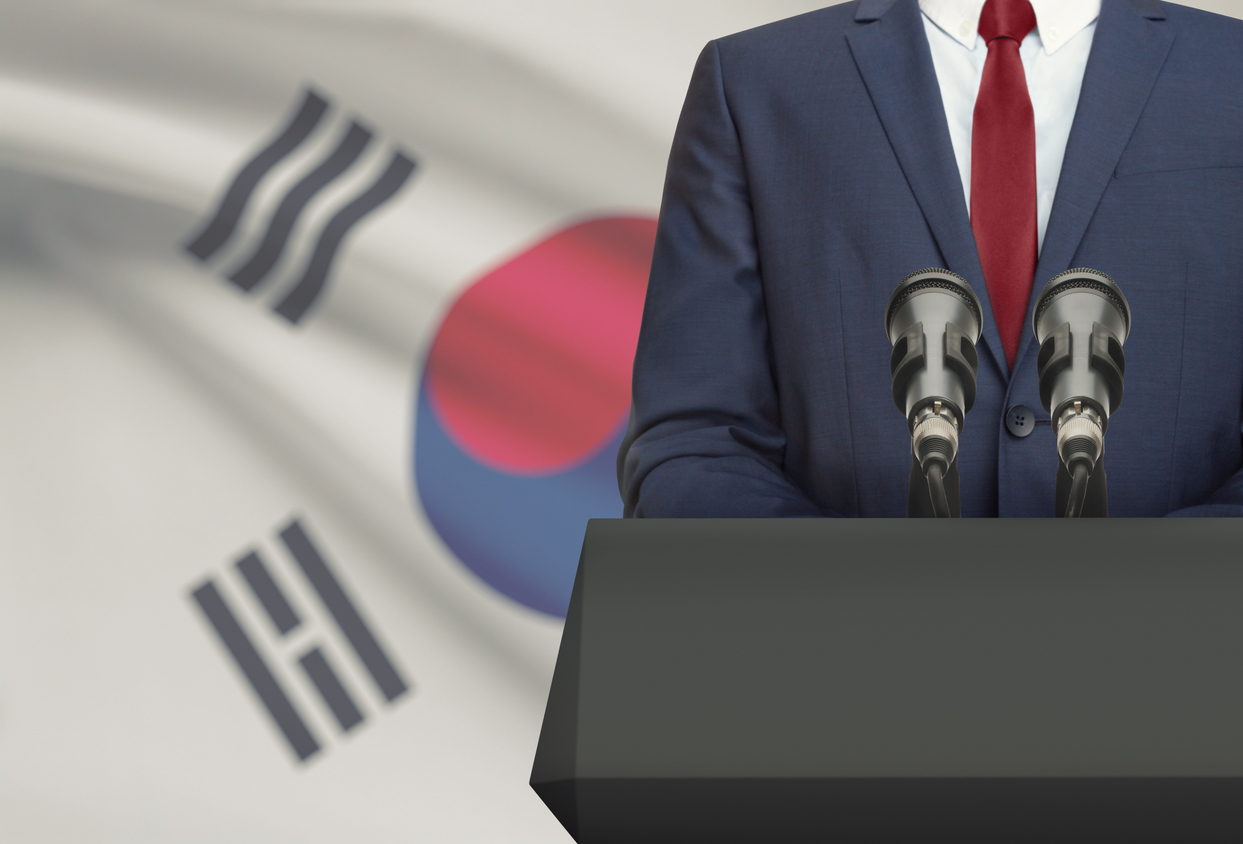 Feeling a duty to share expert insights about East Asia, we are launching a column in which we present an assessment of the current situation in the region in a popular style.
Feeling a duty to share expert insights about East Asia, we are launching a column in which we present an assessment of the current situation in the region in a popular style.
The first comment is about the ousted South Korean President Yoon Suk-Yeol. There is little information in the media about the current situation, as the trial is not yet complete. Here is our take on it.
Austėja Kondrataitė* and Arvydas Kumpis
On the evening of December 3, 2024, the news came from South Korea, where President Yoon Suk Yeol declared the Marshall Law and tried to take over the government. Ultimately, the president is arrested and can face the death penalty. But how did the former president end up here?
Yoon Suk Yeol entered the political scene as a righteous prosecutor and anti-corruption crusader, with his role in the impeachment of Park Geun Hye, former president of South Korea, who was accused of corruption and democratic backsliding. Yoon’s campaign promised to deal with corruption, revive the economy, lessen unemployment, and maintain a firm attitude against North Korea. Koreans saw him as a leader who could bring a brighter future for the country. Yoon’s presidency (2022-2025) was rocked with scandals involving his wife, Kim Keon Hee: The former president’s wife is now accused of political interference, bribery, stock manipulation, and academic dishonesty. The scandals and public frustration over the slow response to the tragedy of the Itaewon Halloween crowd crush that led to the deaths of more than 159 people and nearly 200 injuries. In addition to the tragedy, the economy did not improve, and inflation rose. The media started calling the president a “lame duck” (a term describing a politician who will not seek another term and is no longer relevant) while his rating plummeted. On the other hand, the “lame duck” position allows for unpopular steps, and one of the most drastic is the declaration of martial law.
Marshall law is a temporary imposition of military rule by a government in response to a crisis or emergency; the military authorities take over the functions of civilian government and halt normal legal processes and civil rights. President Yoon accused the members of the National Assembly of aiding North Korea and warned the politicians to protect democracy. The decision triggered widespread protests and resistance, the Parliament swiftly annulled the Marshall Law and tried to impeach the president. Eventually, Yoon was detained, put in jail, and is now on trial for committing crimes.
Hong Jang Won was the First Deputy of South Korea’s National Intelligence Service (NIS), who refused to follow the orders of Yoon during the Marshall Law crisis. Hong has claimed that Yoon has called him to give him names of the people to arrest: “Take this opportunity to round them (the lawmakers) all up. The NIS will be given counterespionage authority, so for now, assist the Defense Counterintelligence Command (in doing so),”. In his testimony, Hong said that he liked the president and served him with loyalty; however, the thought of arresting the key politicians did not sound right. Hong said, “I wanted to do everything that he might ask me to do. But looking at that list (of the politicians to arrest), it was something I could not bear. … Isn’t it wrong for the Republic of Korea to do this?”.
Now the president is residing at the Seoul Detention Centre. Yoon’s defense team claimed that the president is ill, citing his cardiovascular, autonomic nervous system, and eye issues.
Yoon no longer has immunity from criminal prosecution; the trial is still ongoing on the charge of insurrection, the most serious crime in Korean law. In contemporary times, former president Park Geun Hye was sentenced to 22 years for abuse of power but pardoned; the act of pardon could be seen as maintaining political stability. The former president Yoon could be sentenced to prison.
If this pattern is repeated, the South Korean justice system will be even more discredited – Yoon himself pardoned former President Lee Myung-bak, who was sentenced to 17 years in prison for corruption, but only spending 2 years behind bars. It is possible that the pardon was granted not only for political stability, but also for ideological commonality – both presidents are representatives of the conservative line. So, according to the pendulum principle (in South Korea, presidents cannot be re-elected, and in recent years the next president has usually been from the opposition camp), Yoon could expect a pardon from another president who will take office after the current President Lee Jae-myung.
Is this a sustainable model? So far, the system is functioning – elections are held, presidents are elected, and the courts react when violations of the law occur. However, law violations by top officials are not disappearing. It can be assumed that without risking re-election, the president’s actions are less focused on pleasing voters (quite contrary to other democracies with re-election mode). Until amnesties for former heads of state are repeated in practice, in this maturing, but still relatively young democracy, we can expect to see cases of abuse of power, corruption, and imprisonment of presidents.
*Austėja Kondrataitė is a master’s student in the Diplomacy and International Relations program at Vytautas Magnus University, and an intern at the Centre for Asian Studies.










 Follow
Follow